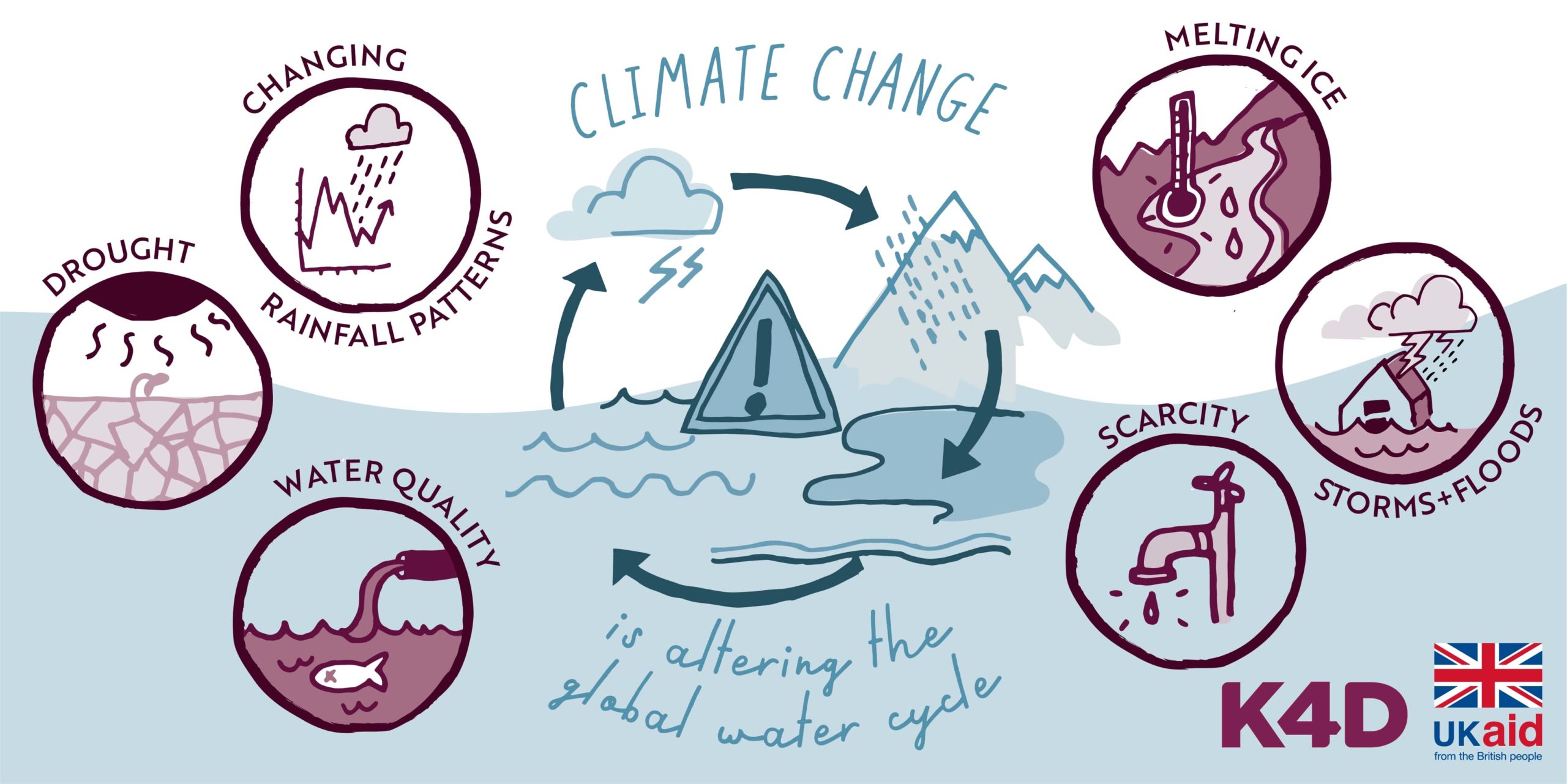To increase learning for UK Government staff, particularly those in posts, on water security and climate. This K4D learning journey specifically aimed to complement a new water policy, which sought to better integrate water security into development programming, policy dialogue and trade and investment work, as well as to enable action in the lead up to and following COP26.
Water Security is an ever-growing important issue that is demanding more attention from national, regional and international communities.
With FCDO’s role as a major donor in the space (although there have been significant cuts over the past few years), there is a strong group of climate and water focused people within the Department who were eager to increase their knowledge, but also to publicise the importance of water security.
K4D learning journeys are collaborative, cross-discipline learning processes, usually involving other UK government departments and development partners. Facilitated by thematic experts, and supported by evidence synthesis and learning products, learning journeys provide spaces for discussion and reflection linked to specific complex issues and challenges.
This learning journey on water security was delivered in connection with a large IDS-led programme: Knowledge, Evidence and Learning for Development (K4D), which has led over 40 learning journeys. It built on IDS’ experience of running similar activities with other donors, as well as the institute’s many years at the forefront of participatory learning approaches.
Led by researchers from IDS, the University of Birmingham, and the Liverpool School of Tropical Medicine (LSTM), and working closely with senior advisors at FCDO, this learning journey drew on existing K4D and partner networks to ensure that the delivery of outputs, activities and sessions were designed to meet the learning journey’s objectives.
Specifically, the learning journey involved training and facilitation on water governance and climate resilient water, with tailored opportunities for active learning for smaller groups of participants on work-related themes. This gave participants the opportunity to reflect on their learning, apply their increased knowledge and explore networks they could draw on for programme and policy support.
An expansive set of activities and learning products were developed to support this learning journey, including webinars, discussion sessions, helpdesk reports, infographics, resource packs, events, videos, and a Chatham House Climate Briefing podcast on mainstreaming water into climate policy.

All of K4D’s learning journeys were delivered by a consortium of leading organisations working in international development, led by the Institute of Development Studies (IDS), with the Education Development Trust, Itad, University of Leeds Nuffield Centre for International Health and Development, Liverpool School of Tropical Medicine (LSTM), University of Birmingham International Development Department (IDD) and the University of Manchester Humanitarian and Conflict Response Institute (HCRI).
Delivery partners for this particular learning journey included:
IDS staff involved in this learning journey included:
Some examples of the job titles of participants in this Learning Journey include:
More than 300
Evidence indicates that this learning journey provided a valuable vehicle for participants to deepen their knowledge on the topic, share experiences, build networks, and develop their ability to integrate water security into policy and programming.
The learning activities equipped FCDO staff and diplomats with the knowledge and capacity to communicate with external stakeholders on the critical role that water security plays as a cross-cutting issue. Specifically, engagement with the learning journey activities and products supported the development of a Water Security Community of Practice, and also informed the design of several pieces of programming. These include:
In addition, discussions from this learning journey stimulated interest in developing a related learning journey on the topic of International Nature, which took place in 2021.